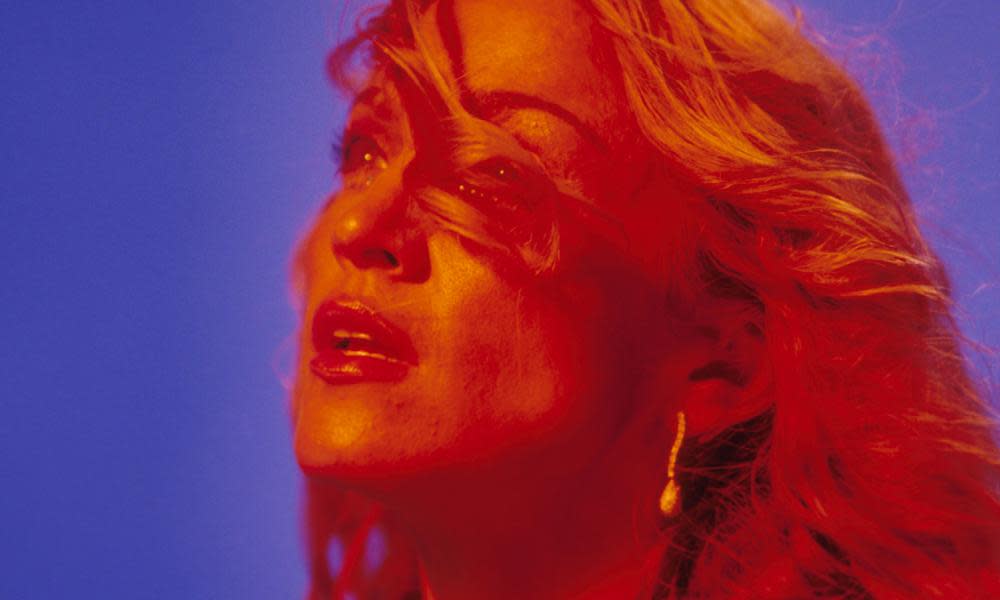Ray of Light: Madonna’s lesson in maturity or gateway for Goop?

Twenty years ago this week, Madonna regenerated as a yoga-loving, Kabbalah-following, mysticism-spewing Earth Mother. After 1994’s R&B-flavoured Bedtime Stories album had helped sanitise the brand post Erotica’s S&M, 1998’s Ray of Light represented a mature – but not boring – move into blissful reawakening. The platinum blonde hair of old was sandier, while the look was less Marlene Dietrich and more Phoebe from Friends.
Like most top-tier Madonna albums, Ray of Light has had a huge cultural impact. Not only did the album’s skewed electronic pop sound come to define radio’s immediate future – mainly thanks to its previously little-known UK producer William Orbit going on to work with All Saints, Pink and Blur – it also became the template for pop stars looking to say Something Important via the prism of their own experience. “I feel a sense of responsibility because my consciousness has been raised and I would like to impart the wisdom I have to others,” Madonna told Spin.
Pulling back the curtain, Ray of Light touches on the fickleness of fame (Drowned World/Substitute for Love), mortality (Mer Girl) and, on the joyous Little Star, motherhood (daughter Lourdes was born at the end of 1996). It is no coincidence that in 2013 Britney Spears – who released her debut single the same year Ray of Light came out – worked with Orbit on Britney Jean, an album trailed as her “most personal yet”.
For Adele, Ray of Light became a saving grace. Detailing how lost she felt making 25 following the birth of her son, she told Rolling Stone: “I couldn’t find that many examples for myself where I was like: ‘Fuck, they truly came back to themselves,’ until someone was like, ‘Well, obviously, Ray of Light.’” It is testament to the persuasiveness of the self-discovery narrative that runs through Ray of Light that Adele would see it as the return of the real Madonna. As Madonna explained at the time, her last few albums had come “from a place of anger and frustration”. Ray of Light is the ultimate zen-like cleanse, a life-appraising album that became a necessity for all long-term megastars.
As Pitchfork pointed out last year, however, Ray of Light’s earthy navel-gazing and garbled sloganeering (Shanti/Ashtangi is a yoga chant set to music) can also be seen as partly to blame for Gwyneth Paltrow’s “lifestyle brand” Goop, and the litany of celebrities who preach wellness via Instagram posts and beauty treatments involving steaming your undercarriage. “My spiritual journey is to be open to everything,” Madonna mused in 1998. “Pay attention to what makes sense, be absorbed.” If that’s not a slogan waiting to be sewn on to an overpriced scatter cushion, I’ll down my $27 bottle of Psychic Vampire Repellent.

 Yahoo News
Yahoo News 
